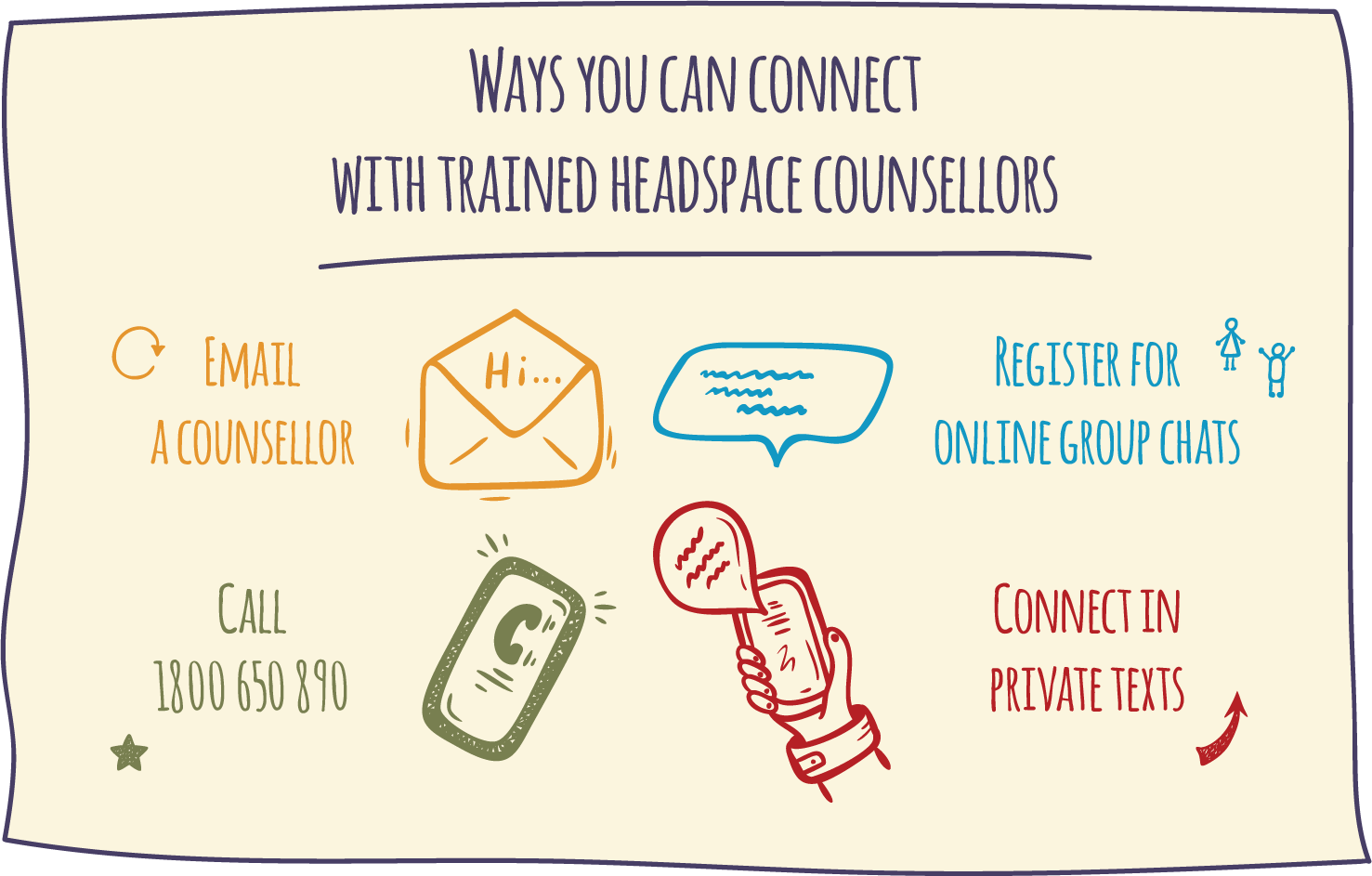For a bunch of reasons, going to a face-to-face counselling session isn’t always an option. Maybe you don’t have access to an in-person service, or maybe you feel more comfortable talking to someone online, over the phone, or even as part of a group chat.
If you’re 12-25 years old and want a bit of help to deal with things happening in your life, headspace is a great organisation to reach out to.
In addition to offering in-person support through their headspace centres, headspace has a range of ways to support you online or by phone.
If it’s your first time reaching out to headspace, it is completely normal to feel a little nervous. Here’s a rundown of how to get support, some of the services on offer, and what you can expect when you call, email or message headspace online.



